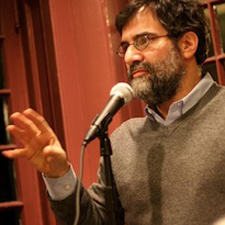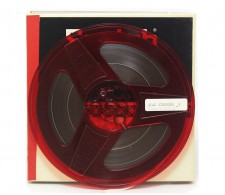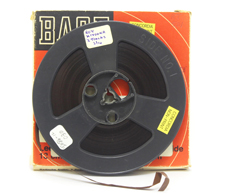Al Filreis is Kelly Professor of English, Faculty Director of the Kelly Writers House, Director of the Center for Programs in Contemporary Writing, Co-Director of PennSound, Publisher of Jacket2 magazine. He is author of books on modernism, on poetry during the cold war, and the literary politics of the 1930s – among them, Modernism from Right to Left and Counter-Revolution of the Word: The Conservative Attack on Modern Poetry, 1945–60.

Authors | Al Filreis
Articles on Amodern by Al Filreis
BEYOND THE TEXT
Literary Archives in the 21st Century
Between April 26-27, 2013, the Whitney Humanities Centre at Yale University brought together a group of literary and information science scholars, historians, curators, archivists, writers, and publishers for a two-day symposium in the Beinecke Library, where they listened to papers and panel discussions and engaged in intensive discussion about the status of the literary archive in the 21st Century. For the “Beyond the Text” symposium, Al Filreis (University of Pennsylvania), Jason Camlot (Concordia University), and Steve Evans (University of Maine) were invited to conduct a panel discussion that considered the literary Sound Archive. What follows is a textual translation of the original discussion.
NOTES ON PARAPHONOTEXTUALITY
The live poetry reading can be understood as creating signifying moments of paratextuality – nontextual, extrapoetic aspects that serve to provide very specific interpretive cues to the listener as to how to respond to a poem at the moment of its utterance. From this emerges an aural literary history tracing a lineage of ways in which poets’ responses have in turn encouraged the alteration of the performance of the poem in mid-performance. At times such aural events change not just our sense but, too, the poet’s sense of the poem, even in its textual state. A study of phonoparatextual elements as they are left as traces in a recording can lead to a revised conception of the poetry reading as not like Erving Goffman’s notion of the lecture – for the performer’s antics are the poem, rather than the subject matter.





